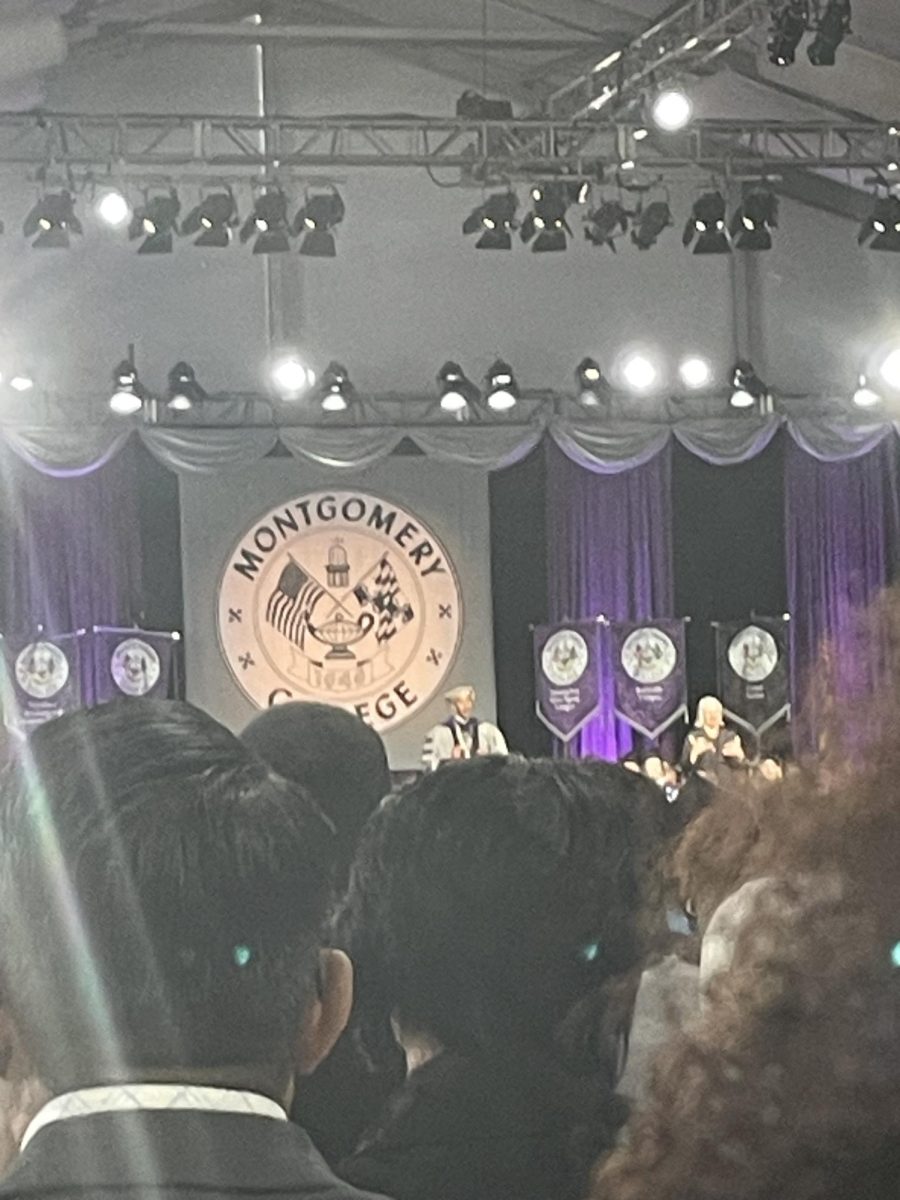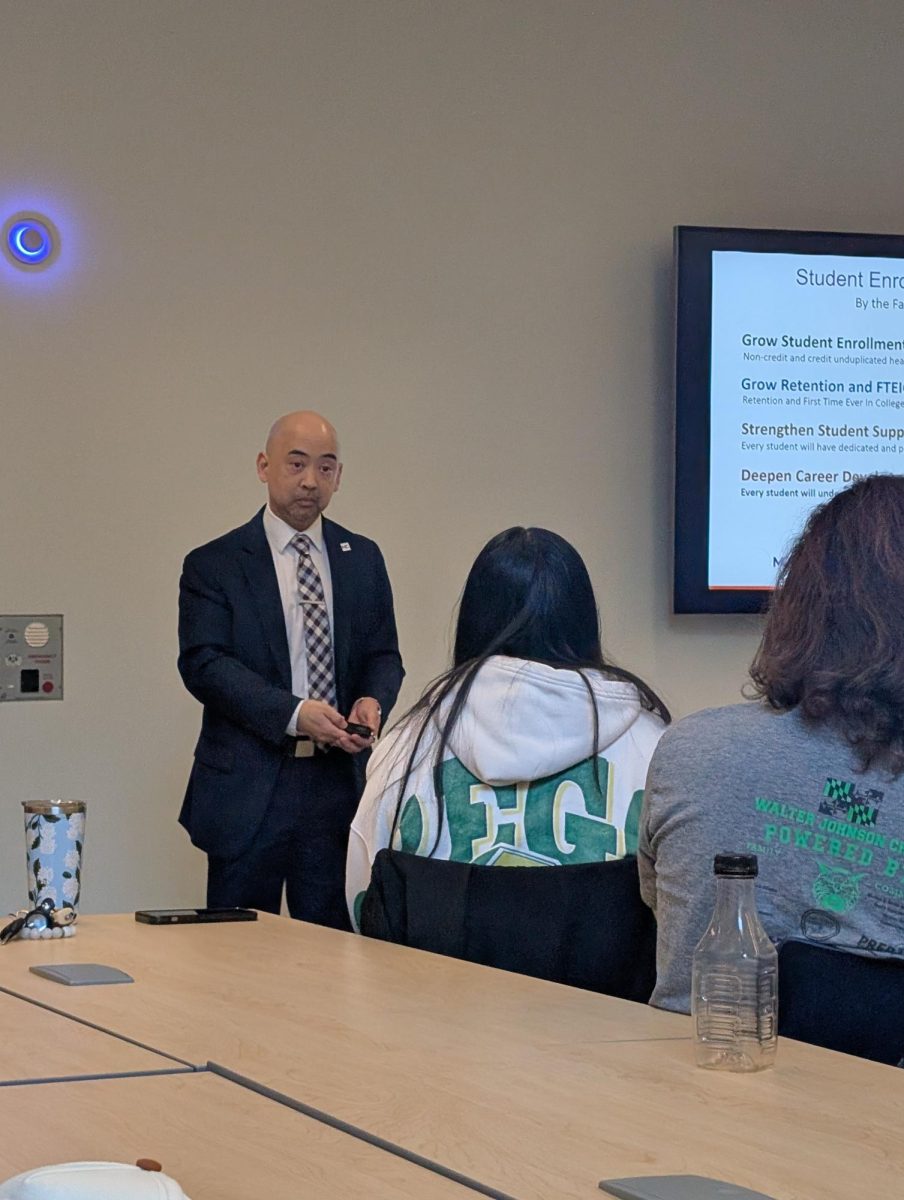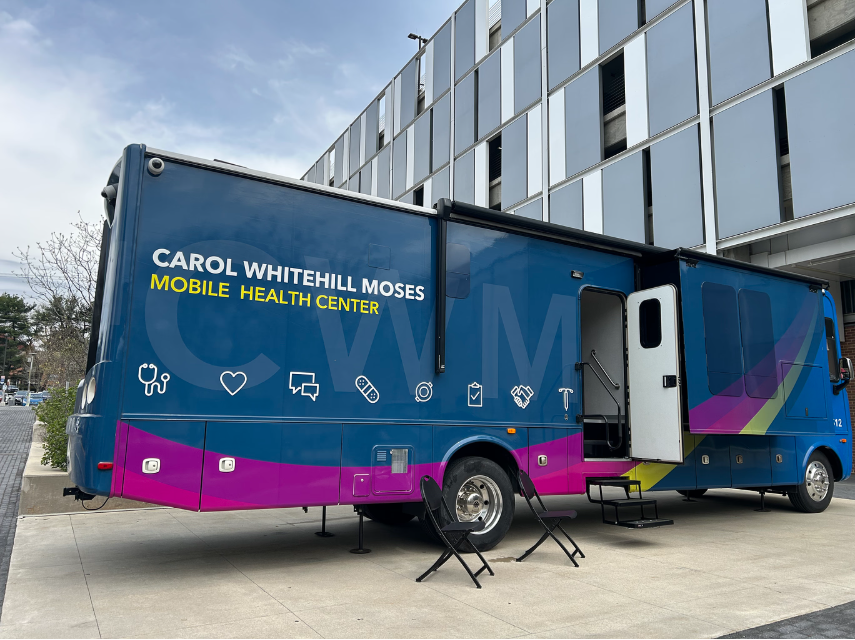Photo: Professor Michael Abd-Elmessih (left) Dr. Aram Hessami (center) and Dr. Nathan Zook (right).
Arabic studies and political science faculty at Montgomery College hosted a panel, “Clash Within a Civilization: Democracy in the Middle East” on Wednesday, October 10 in the Theatre Arts building of the Rockville campus.
The talk was led by Professor Michael Abd-Elmessih, an Arabic studies professor, as well as Dr. Nathan Zook and Dr. Aram Hessami, both professors of political science.
The panel was broken up into two parts: the first half was composed of discussions and the second half was left for a Q&A session.
The main theme was the current transition to democracy in the Middle East. With democratic movements becoming ever so popular in the Middle East, the idea of adopting a democracy as the main form of government is being supported throughout the region. Civilians and political actors are participating in demonstrations and movements to voice their opinions on the belief that democracy is the ideal form of government.
Dr. Zook began the discussion with liberalization of the Middle East and the government’s role in enacting appropriate policies. It is the slow and dangerous process of liberalizing a country in a region where dictatorships dominate different aspects of government that can be seen in western media today.
The idea that people can choose their own leaders and have control over their own government has spread all over the Middle East. The “Arab Spring” as it is being called, is a series of controversial and highly debated social, economic, and political movements throughout the Middle East.
“Nostalgia for dictatorship is not unique to Egypt,” said Zook, while noting that there are many opposition groups to these liberalist movements, who support current and past dictators and do not want such progressive-style minds changing and affecting policy.
Upon citing various articles from the Constitution of Medina, Zook introduced the idea that the role of religion is also changing. Article 10 of the Constitution of Medina grants non-Muslims the same rights and protections as Muslims, and Article 30 of the constitution grants freedom of religion to both Muslims and non-Muslims. These kinds of legislative monuments, suggest that the liberalization of the Middle East is most certainly not a lost cause, and that these movements affect everyone.
Dr. Aram Hessami introduced the emerging role of the United States and international organizations in the Middle East. Hessami stressed the fact that the U.S. and other political powerhouses have some sort of responsibility to support these movements. Hessami asked, “Who is responsible? What is the role of the U.S. when situations become bloody?”
Without a doubt, the role of the United States is critical when analyzing the democratization of the Middle East. As the supposed leader of the “free world” and powerhouse government that prides itself on upholding individual rights and freedoms, the United States clearly has an obligation to support these movements. How large the responsibility is, however- this is debatable. Military and economic intervention are among the most debated aspects of American intervention in the Middle East.
Professor Abd-Elmessih focused more so on the role of society and how current Middle Eastern governments can be further analyzed. “Social class still exists in the Middle East,”Abd-Elmessih said. A very important piece in these movements, social class could affect the perception and interpretation of these movements, including the role of an individual.







